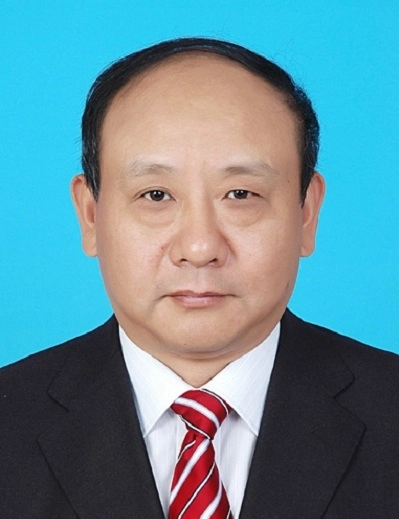1.Kecheng Liu, Professor, Director of Digital Talent Academy, Henley Business School, University of Reading, UK
2.Yannis A. Phillis, Professor, School of Production Engineering and Management, Technical University of Crete, Greece
3.Martin Dresner, Professor, Logistics, Business and Public Policy Department, University of Maryland’s R.H. Smith School of Business, USA
4.Chen Jian, Professor, Lenovo Chair Professor at Department of Management Science and Engineering, Tsinghua University
5.Xuewei Li, Professor, Vice Chairman of Transportation Branch of China System Engineering Society
6.Min Zuo, Professor, Secretary of the Party Committee, and President of Beijing Wuzi University.
UPDATING……

Kecheng Liu
Email: k.liu@henley.ac.uk
Kecheng Liu, Fellow of the British Computer Society and Senior Fellow of the Higher Education Academy, currently holds the position of Professor of Applied Informatics at the University of Reading. Additionally, he serves as the Director of the Digital Talent Academy. With a diverse range of roles, including academic lead, senior advisor, and consultant, his extensive experience spans areas such as business and IT strategies, information management, and digital leadership and transformation in both public and private sectors. As a prominent researcher, he has published 300 papers in various journals and conferences and has authored and edited 25 books on topics ranging from organisational semiotics, business and IT strategy alignment, to business informatics (e.g. in big data analytics and AI for business transformation, healthcare and green finance).
Title
leveraging the power of AI and digital solutions
Abstract
The widespread adoption of artificial intelligence and digital solutions across all industries is leading to profound and unprecedented socioeconomic and business impacts. Termed the fourth industrial revolution, this era is characterised by a focus on data utilisation, business processes and behaviour in the virtual dimension, and the value creation through intangible resources such data and sign-based resources. These features contrast starkly with the emphasis on physical resources in previous industrial revolutions. This keynote presentation will explore the nature and characteristics of modern businesses, examining the role of digital technologies and solutions in enterprise digitalisation and the formation of digital business ecosystems. It will introduce an organisational onion model to assess enterprise competencies and leadership readiness for transformation towards a digital business ecosystem that operates in both virtual and physical realms and collaborates with partners within a digital business ecosystem.

Yannis A. Phillis
Website: www.phillis.tuc.gr
Yannis A. Phillis received his diploma in electrical and mechanical engineering from the National Technical University of Athens, Greece, in 1973 and his Ph.D. from the University of California, Los Angeles (UCLA) in control systems in 1980. He has held academic positions at UCLA, Boston University, Escuela Superior Politecnica de Chimborazo in Ecuador, and the Technical University of Crete, Greece, where he is professor emeritus and was rector for more than 12 years. In 2008 he was Onassis Foundation Senior Visiting Fellow in the US.
He is a recipient of numerous awards from Boston University, the Academy of Athens, and the Municipalities of Chania and Assini, Greece, for his service to society, science, and letters; recipient of a “Lifetime Achievement Award,” at the World Automation Congress, Kobe, Japan, 2010; Alumni Achievement Award in Academia from UCLA, 2013; World Automation Congress Medal of Honor, Cancún, Mexico, 2024. He is an award winning poet and novelist in Greece and the US. He is a member of the Greek PEN Club, and Poets and Writers, USA; Fellow of the American Association for the Advancement of Science (AAAS); Fellow of the European Academy of Sciences (EurASc); member of the European Academy of Sciences and Arts (EASA).
Title
A national healthcare model under climate change
Abstract
Extreme phenomena connected with climate change such as flooding, wildfires, air pollution, infectious diseases and reduced food production exert a lot of pressure on human health and, by consequence, on national healthcare systems. Allocation of healthcare resources in this talk concerns numbers of doctors, hospital beds and advanced medical equipment. Such an allocation must presently include the negative effects of climate change. To solve the allocation problem, a hierarchical model of national healthcare is developed together with a performance measure which is a proxy for life expectancy. This framework, in conjunction with a set of empirical constraints based on real data and nonlinear programming, leads to an optimal allocation. Various scenarios of climate impacts are examined and additional resources are computed to compensate for the burden of climate change. Several case studies of countries belonging to different income classes illustrate the practical use of the proposed methodology. It turns out that the necessary healthcare budget grows nonlinearly with respect to impacts affecting lower income countries disproportionately.

Martin Dresner
Martin Dresner has served on the faculty of the University of Maryland’s R.H. Smith School of Business since 1988 where he is Professor in the Logistics, Business and Public Policy Department. He has two areas of research, air transport policy and supply chain management. Professionally, Dresner is Chair of the Air Transport Research Society (ATRS) and is on the Scientific and Steering Committees of the World Conference of Transport Research Society (WCTRS). He serves Co-Editor of the Journal of the Air Transport Research Society, as Senior Editor for the Journal of Business Logistics, and sits on several other editorial boards.
Title
Targeting online sales through last-mile delivery platform integration
Abstract
This research paper analyses channel integration between a last-mile delivery platform and a general merchandise retailer that sells both grocery and non-grocery items. Integration between the retailer and delivery platform is examined in two distinct stages: (1) platform delivery access (PDA), where the retailer continues to offer standard delivery through its own website but directs customers to the platform’s website for new same-day delivery; and (2) integrated delivery access (IDA), where customers can continue to use same-day delivery service at the delivery platform website, but more importantly, can purchase products in a single order with both same-day and standard delivery options at the retailer’s website. Overall, the two levels of integration increase total sales across the two online channels. In addition, we find that the positive effects of PDA on the delivery platform’s sales are stronger in markets where online grocery penetration is lower. Finally, the positive effect of IDA on the retailer’s online channel sales is stronger in markets where the retailer has a greater loyal customer base.

Chen Jian
Lenovo Chair Professor at Department of Management Science and Engineering, Tsinghua University
Chen Jian is Lenovo Chair Professor and Chairman of Management Science Department, Director of Research Center for Contemporary Management, Tsinghua University. He received the B.Sc. degree in Electrical Engineering from Tsinghua University, Beijing, China, in 1983, and the M.Sc. and the Ph.D. degree both in Systems Engineering from the same University in 1986 and 1989, respectively. His main research interests include supply chain management, E-commerce, decision support systems and systems engineering. Dr. Chen has published over 200 papers in refereed journals and has been a principal investigator for more than 50 grants or research contracts with National Science Foundation of China, governmental organizations and companies. He has been invited to present several plenary lectures at international conferences. He has been elected to IEEE Fellow (2008). He serves as Chairman of the Service Systems and Organizations Technical Committee of IEEE Systems, Man and Cybernetics Society, and Vice President of Management Science and Engineering of China (2017-). He also serves as editor-in-chief/senior editor/editorial board member for some international journals.
Title
Quality and Private Label Encroachment Strategy
Abstract
We consider a supply chain consisting of an incumbent national brand manufacturer and a retailer, who wishes to determine the private label encroachment strategy. By investigating the cost–quality trade-off between lower- and higher-quality private labels, we characterize the retailer’s optimal encroachment decisions. Intuitively, the retailer would choose to introduce a lower-quality private label when the quality of the national brand is high. However, we find that a higher-quality private label may better benefit the retailer under certain conditions. Moreover, we establish that introducing a higher-quality private label can improve both channel profit and consumer welfare. Using the results we derive, we explain the market practices and provide useful guidelines for retailers’private label ncroachment decisions.

Xuewei Li
Email: xwli@bjtu.edu.cn
Xuewei Li, Vice Chairman of Transportation Branch of China System Engineering Society, Professor of Beijing Jiaotong University, President of China Russia Jiaotong University Presidents Union (Chinese side), and President of Eurasian Association of Transportation Universities. In recent years, he led his team to make important achievements in key technologies of Big data, high-speed rail safety, intelligent transportation and other fields, and won the second prize of the 10th Wu Wenjun Artificial Intelligence Science and Technology Progress Award. He has presided over more than 10 national and provincial and ministerial research Science Institute, and published more than 10 books. Besides, he has published over 60 papers in important journals and conferences, such as the Journal of Forecasting, Chinese Science Bullitin, Electronic Science, Chinese Soft Science, Quantitative and Technological Economics, Control and Decision Making.
Title
Disscution to the Theory of Global Associative Space of Human Consciousness
Abstract
With the rapid development of Internet, big data, cloud computing, artificial intelligence and other modern information technologies. Various theories, technologies, and products related to big data and artificial intelligence are constantly breaking through. Based on a brief summary of the four key technical issues in big data applications, this article proposes the theoretical problem of machine intelligence's dependence on big data in the physical world: the construction of Global Lingkage Space (GLS), and discusses the characteristics of GLS and its application in AI algorithm clusters; A construction mechanism of Global Thinking Space (GTS) and a comprehensive application method of GLS are proposed to distinguish between machine and human intelligence in the field of consciousness. The aim is to simulate real human intelligence, combine various AI technologies, explore the evolutionary logic structure of algorithm groups for designing human brain consciousness, and analyze the future development direction of intelligent robots with human consciousness.

Min Zuo
Professor Min Zuo, Secretary of the Party Committee, and President of Beijing Wuzi University. He was recognized as a State Council Expert for Special Allowance and Beijing Scholar. Professor Zuo has long been engaged in research on complex systems, systems engineering, artificial intelligence, and big data, possessing rich experience in teaching, research, and practice.
Title
Big Data and Artificial Intelligence Technology Assisting Food Safety Supervision
Abstract
Artificial intelligence has evolved from its earliest stages of AI to AGI (Artificial General Intelligence), and now to AIGC (Artificial Intelligence Generated Content) represented by technologies such as ChatGPT. This evolution has brought about significant and far-reaching changes and reforms in human society. The food industry plays a crucial role in the development of the world economy, and its quality, safety, and equitable distribution are essential for societal progress. Therefore, empowering food science with data intelligence based on the development of AI over the past few decades, has become one of the most active and valuable fields in AI research. It is foreseeable that artificial intelligence will bring more innovations and breakthroughs in areas such as food safety and supervision, food flavor and health, and future food development. This will help to implement the "all-encompassing approach to food" strategy, promoting human dietary nutrition and health, as well as the green and sustainable development of the food industry.






